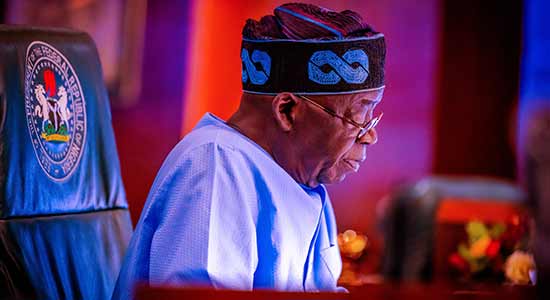ARTICLE AD
SIX months after President Bola Tinubu recalled all career and non-career ambassadors from Nigeria’s diplomatic missions worldwide, their offices in embassies and consulates have remained vacant. This is a repeat of the situation under Muhammadu Buhari. After the National Assembly approved the list of ambassadors from Buhari in 2020, Tinubu’s predecessor delayed their posting for six months. This time, the President needs to move faster to boost Nigeria’s diplomatic image and presence.
The envoys, including 41 non-career ambassadors and 42 career ambassadors appointed by Buhari, were in September directed to return to the country on or before October 31.
Special Adviser to the President on Media and Publicity, Ajuri Ngelale, explained that the President’s directive followed his careful analysis of the present situation at Nigerian Consulate Offices and Embassies worldwide, and in line with his “renewed hope agenda.”
But six months on, the situation remains the same as the country’s foreign policy programmes are reportedly left unpromoted.
The argument is that considering Nigeria is suffering from a poor diplomatic image across the globe, making it imperative to improve its standing and reputation in the comity of nations, the delay is unwarranted.
The implication is that there is no appointed envoy (other than the permanent secretary or Head of Mission) with a leading voice to promote the country’s foreign policy objectives, protect the national interest in foreign lands, as well as pursue international cooperation.
Although Nigeria’s foreign policy seems to be Afrocentric, it often tends to promote international cooperation for the consolidation of universal peace and mutual respect among all countries.
Recent events have however cast a shadow over Nigeria’s earned international respect and traditional leadership in Africa. The treatment of Nigerians and the diplomats abroad has become increasingly dehumanising and alarming, raising questions about the country’s standing in the comity of nations.
Over the past few years, Nigerians have faced xenophobic attacks in various countries, including South Africa, where the country had played a crucial role in ending apartheid. The situation in Ghana, where five Nigerians were killed, has prompted concerns about the safety of Nigerian citizens abroad. The mistreatment of Nigerian deportees, often seen in shackles, is not only inhumane but also demands urgent attention.
The transformation from a globally respected country to one facing disdain and opprobrium did not occur in isolation. The failure to sustain the Second Republic, leading to prolonged military rule and the annulment of the 1993 elections, marked a turning point. These events significantly diminished Nigeria’s status and influence in world affairs. The loss of economic power added to the descent.
The mismanagement of the economy, pervasive public corruption, and widespread infrastructural decay have further eroded the international respect that the country once enjoyed. The manhandling of Nigerian diplomats abroad is a glaring symptom of this decline, and it is imperative for Abuja to take note and address these incidents promptly.
Under President Goodluck Jonathan, an attempt to buy arms through the back channels led to the seizure of a plane carrying money by South Africa.
The economic leverage once wielded by Nigeria has also dwindled. With over 74 per cent of Nigeria’s noodle market dominated by an Indonesian company, generating over $700 million in annual revenue, it is evident that Nigeria’s economic significance has diminished. This economic vulnerability makes the country susceptible to mistreatment by countries.
The decline from a well-respected global player to a country grappling with mistreatment abroad is a call to action. Nigerian citizens are subjected to constant discrimination and detention across the world. In the Middle East, many work as slaves. Nigeria must reclaim its standing through strategic diplomatic efforts, internal reforms, and an unwavering commitment to protecting its citizens on the global stage.

 6 months ago
39
6 months ago
39 

